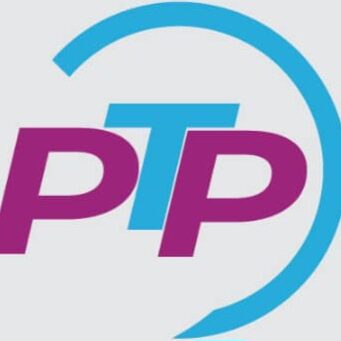GES 2025 Promotion Exam: TEACHING ETHICS OF TEACHERS IN GHANA.

GES 2025 Promotion Exam: TEACHING ETHICS OF TEACHERS IN GHANA.
Teachers must model strong character traits, such as perseverance, honesty, respect, lawfulness, patience, fairness, responsibility, and unity.
As a teacher, you must treat every student with kindness, equality, and respect, without showing favouritism, prejudice, or partiality.
Ethics are the set of moral principles that guide a person’s behaviour.
These morals are shaped by social norms, cultural practices, and religious influences.
-
COWPEA AND GROUNDNUT FARMING IN GHANA (WEST AFRICA).
-
Perfluorinated Alkylated Substances (PFAS) and the Plastic Paradise that Turns Deadly.
-
Perfluorinated Alkylated Substances (PFAS) and the Plastic Paradise that Turns Deadly.
The six characteristics of ethical teaching include appreciation for moral deliberation.
- empathy,
- knowledge,
- reasoning,
- courage,
- and interpersonal skills.
The Importance of Teacher Ethics.
- The code of ethics for teachers is designed to protect the rights of the students, all students….
- For example, you can’t accept expensive gifts from students because it might appear to bias you. You can’t push your personal beliefs on students because they are a “captive audience”.
- The code of ethics for teachers is designed to protect the rights of the students, all students.
- It is important that teachers understand that when they get a teaching position, they are agreeing to follow the code of ethics.
- Teachers are expected to be fair to all their students and not to take advantage of their position in any way
- For example, you can’t accept expensive gifts from students because it might appear to bias you.
- You can’t push your personal beliefs on students because they are a “captive audience”. You need to have a professional relationship with all students and not let it get too casual and familiar.
- Apparently, there is quite a bit of abuse that is happening in the school.
- You need to protect your students’ safety and not believe that this is someone else’s job.
- The main thing is not to abuse the power that your position, over your students, might give you.
- Think through the implications of what happens. Also, our country separates “church and state”. Whether you agree with this or not, as a teacher, you need to respect this and keep religious bias out of the classroom.
Sessional Code of Ethics for Teachers
- Help students learn the academic basics, but they also teach valuable life lessons by setting a positive example.
- As role models, teachers must follow a professional code of ethics.
- This ensures that students receive a fair, honest, and uncompromising education.
- A professional code of ethics outlines teachers’ main responsibilities to their students and defines their role in students’ lives.
- Above all, teachers must demonstrate integrity, impartiality, and ethical behaviour in the classroom and in their conduct with parents and co-workers.
Students Matter Most
- Teachers must model strong character traits, such as perseverance, honesty, respect, lawfulness, patience, fairness, responsibility, and unity.
- As a teacher, you must treat every student with kindness, equality, and respect, without showing favouritism, prejudice, or partiality.
- You must maintain confidentiality unless a situation warrants involvement from parents, school administration, or law enforcement, and never use relationships with students for personal gain.
Commitment to the Job
- Teachers must wholly commit to the teaching profession.
- Your classroom should promote safety, security, and acceptance, always avoiding any form of bullying, hostility, dishonesty, neglect, or offensive conduct.
- You must accurately describe your qualifications, credentials, and licenses to school boards or principals who seek to hire you.
- You must also fulfill all contracts; obey school policies; and account for all funds and resources at your disposal.
- It’s your responsibility to design lesson plans to meet state standards and create a well-rounded education plan that appeals to a wide range of learners.
COWPEA AND GROUNDNUT FARMING IN GHANA (WEST AFRICA).
Perfluorinated Alkylated Substances (PFAS) and the Plastic Paradise that Turns Deadly.
Perfluorinated Alkylated Substances (PFAS) and the Plastic Paradise that Turns Deadly.
Keep Learning
- A professional code of conduct demands attentiveness to continuing education requirements and career development.
- You must research new teaching methods, attend classes to maintain your certifications, consult colleagues for professional advice, participate in curriculum improvements, and stay up to date on technical advancements for the classroom.
- It’s your duty to ensure that your teaching methods are fresh, relevant, and comprehensive.
- Teachers must engage in educational research to continuously improve their teaching strategies.
Healthy Relationships Top the List
- In addition to fostering healthy relationships with students, teachers must build strong relationships with parents, school staff, colleagues in the community, guidance counsellors, and administrators.
- You must never discuss private information about colleagues unless disclosure is required by law.
- Always avoid gossip, including false or mean-spirited comments about coworkers.
- Part of the code of ethics requires you to cooperate with fellow teachers, parents, and administrators to create an atmosphere that’s conducive to learning.
- You might be called upon to train student teachers as they prepare to serve as educators, so a positive attitude and a team-centered mindset can make all the difference.





3 thoughts on “GES 2025 Promotion Exam: TEACHING ETHICS OF TEACHERS IN GHANA.”